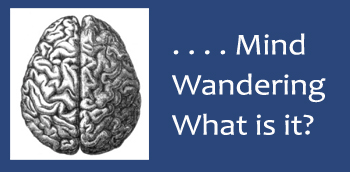Dr. Jonathan Schooler earned his BA at Hamilton College in 1981 and his Ph.D. at the University of Washington in 1987. He joined the psychology faculty of the University of Pittsburgh as an assistant professor that same year and became a research scientist at Pittsburgh’s Learning Research and Development Center.
He moved on to the University of British Columbia (UBC) in 2004 as professor of psychology, Canada Research Chair in Social Cognitive Science and senior investigator at UBC’s Brain Research Centre.
In 2007 he joined the faculty at UCSB where he pursues research on consciousness, memory, the relationship between language and thought, problem-solving, and decision-making.
His lab’s research takes a “big picture” perspective in attempting to understand the nature of mental life, and in particular, consciousness. He addresses broad questions that cross traditional disciplinary boundaries including:
- Mind-wandering: How does the stream of consciousness flow between the external world and internal thoughts and feelings?
- Meta-awareness: When do we notice our thoughts and how does explicitly attending to an experience affect it?
- Belief in free will: What do people believe about their capacity for control, and how do those beliefs impact their behavior?
- Creativity – What processes contribute to creative discoveries, and how can we enhance them?
- Mindfulness: Are their ways of enhancing our capacity to remain focused in the present moment?
- Verbal Overshadowing – Under what situations can putting non-verbalizable thoughts into words be disruptive?
Today we talked with Dr. Schooler and discussed:
- Mind wandering which is a particular type of daydreaming in which you’ve got a primary task that you are supposed to be doing, like reading, and you find yourself someplace else in your mind. He has found that people mind-wander from 1/3 to 1/2 of their day.
- Under the right circumstances, mind-wandering can be tremendously useful.
- Decision making and problem solving: To what degree can we trust our intuition, and is it really a meaningful concept?
- There are many situations in which individuals can hold genuine, authentic, useful and important intuitions where they may not have the full capacity to explain the basis for those intuitions.
- Some studies have found that intuition is about 80% accurate.
- Intuition is very often accurate and it’s important to give them due heed and appreciation–you don’t want to dismiss an intuition just because you can’t fully explain it’s basis.
- Creativity: Important to creativity is intrinsic motivation–people are more creative when they are focusing on the intrinsic element.
- Meta-awareness: It is the idea that only periodically do we check in on our own minds and ask, “what’s going on in my mind right now?”
Join us as we talk with Dr. Schooler about the fascinating subject of the brain and neurosciences’ contribution to performance. Listen to the complete recording, without commercials, above.
Relly


